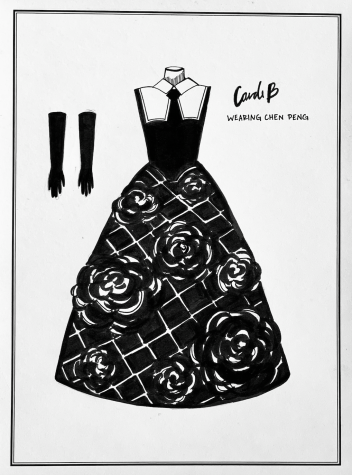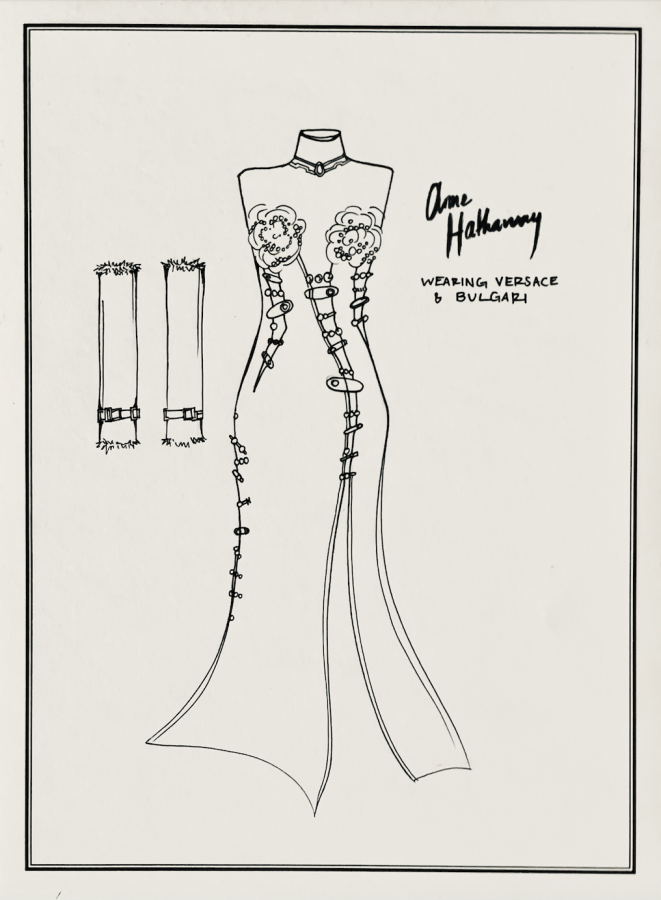May The Odds Be Ever in Your Favor at the 2023 Met Gala
The renowned book series “The Hunger Games” was released back in 2008, but we have been reminded of the Capitol every year since at British fashion icon Anna Wintour’s Met Gala.
A closely followed event, the Met Gala is held annually on the first Monday of May. There, celebrities live out their Gossip Girl fantasies by flocking to the Upper East Side of Manhattan. They gather on the steps of the Metropolitan Museum of Art, surrounded by the flashing cameras of the paparazzi and dressed extravagantly in the likes of Versace, Gucci, Louis Vuitton, Chanel, and Jacquemus. Entrance to this night of extravagance is no small feat. If you thought that getting a Birkin bag or becoming a doctor was hard, try getting invited to the Met Gala. Besides needing an A-list celebrity status and the adoration of Anna Wintour, you must also be able to drop a whopping $50,000 on a ticket.
A quintessential component of the Met Gala is the yearly niche theme. They’ve ranged from “Heavenly Bodies: Fashion and the Catholic Imagination” to “Manus x Machina: Fashion in an Age of Technology” to “Superheroes: Fashion and Fantasy.” This year, the theme was “Karl Lagerfeld: A Line of Beauty,” which entailed lots of Vintage Chanel and elegant white and black dresses, as well as heavy criticism of Lagerfeld’s repeated racism, fatphobia, and sexism.
The Met Gala critiques bear a striking resemblance to the critiques that Suzanne Collins includes in “The Hunger Games,” both bashing the overabundance of opulence and focus on fame. As the wealth gap in America grows, it’s becoming harder and harder to be blinded by glittering gemstones and high fashion hair-do’s. Thus, the Met Gala begins to highlight a concerning theme in America. Some people live in bedazzled dresses. Most people live in reality.
“I mean, it’s all just a bunch of rich people gathering together in rich clothing and doing rich things all together richly, so I don’t think it deserves the attention it gets,” says one Lakesider, whose sentiments seem to echo those of their peers and Met Gala critics.
Yet, year after year, the Met is without a doubt the event to watch. Outfits are discussed excitedly, celebrities are fawned over — some Lakesiders were disappointed to see Blake Lively and Taylor Swift left out of this year’s Met Gala — and clips from the event on Youtube and TikTok are played over and over again. For at least a few days, the Met Gala overwhelms the news — and we flock to it like seagulls to hot dogs at a San Clemente beach (speaking from personal experience).
Does the Met Gala give us hope in the same way that the Hunger Games were designed to give hope to the people in the districts? For some lucky young stars or influencers who have suddenly risen to fame, the Met Gala is an opportunity for them to prove their worth and remind the public that this dream of notoriety is “possible for those who want it.”
Perhaps part of reviewing the outfits that grace the Met is reclaiming the power difference so pretentiously rubbed in our faces. By scrutinizing the Met, even without having attended, we put ourselves in a position to humiliate, shame and embarrass the attendees — an almost satisfactory revenge for not being in the top 1% that can attend.

We’re able to make fun of Jared Leto showing off his fursona, having arrived in an overwhelmingly fuzzy mascot suit. We’re able to compliment Cardi B’s elegant black and white ball gown dress, comment on how Anne Hathaway killed it in an elegant white and gold Versace dress. We’re able to pity Paris Hilton, with this recent Met being her first attendance. She has room to improve, the public agrees. Do we empathize with Kendall when she, just for a second, didn’t emulate a picture of perfection — her dress similar to a magician’s assistant? Do we feel other emotions too? Satisfaction? Relief?
It is an interesting duality we find ourselves in. We try our best to reclaim power by critiquing the Met, and yet it is hard to ignore how we will never come close to closing the power gap between us and its celebrities.
There’s something powerful about the Met Gala — it almost feels like something that’s inevitable, like something that will always be here. A constant. But why? It would be nothing without its audience, and we watch it anyway. Are we merely interested in extravagance, or is there something deeper? Do we watch to make ourselves feel like we’re in their world? Maybe we want to feel like citizens of the Capitol, even though we’ll likely stay stuck in the districts.
Reagan’s Starting Inventory
x1 classic New York attitude
x1 semi-intact California tan
x1 pair of wired headphones for TV Girl and...
Mason loves to read, bake, do jigsaw puzzles, take long walks with his dog in the park, and go on runs. When he isn't reviewing a bakery, he can be found...

